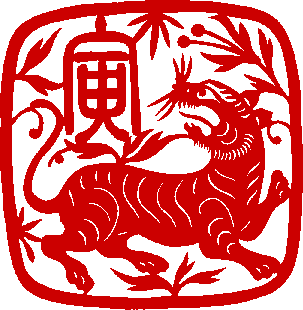 |
| The official logo of the Queer Tiger Aunt. Photo credit. |
The other reason was that I had some Audible credits to use, and was beginning my daily commute again.
Am I glad I did! Here are some things I thought about by actually reading (listening to) the book, rather than basing my judgments of it on a few salacious quotes (or Janet Maslin's review, which has numerous factual errors in it):
- What it means to be the bridge between the immigrant generation and a generation which grows up in privilege and security;
- That someone in the world is thinking about what makes girls confident and strong, rather than viewing female success as a symptom of a society that hates boys;
- That someone other than me thinks that giving young people hundreds of prizes for small accomplishments does little for them except cause them to expect prizes at every turn;
- That one of feminism's central insight in the 1960s -- mothering is a job -- is also one of the great unresolved issues on the feminist agenda. The institutional and social desire to pretend that motherhood isn't a job may be the single most critical issue to address if we are also to address women's equality as workers and citizens in this country.
Similarly, from reading Chua and reading about her, I have discovered that there is really a struggle over what constitutes good motherhood which is not likely to make any difference to anyone. I'm not involved in the Mommy Wars: in fact, as I am not a Mommy, I have only heard rumors of them, not experienced them first hand. As I understand it, they revolve around:
- Men who insist on mansplainin' about what constitutes good mothering;
- Women lecturing other women about what constitutes good mothering;
- Women's ambivalence about the act of mothering, expressed as hostility towards other mothers;
- Why and when we decided that men ought to be heaped with praise for any or all acts that are similar to mothering.
To say I am a queer aunt is obvious on several levels. As an aunt, one occupies a role from which critiques of what stands for normal parenting can be acted upon in a complementary and/or subversive way. Hence, to be a truly productive and energetic aunt is to be queer in relation to some child or children regardless of whether you are a homosexual or not. It beats being a mother with a stick, if you ask me. It's not a job, as mothering is: it's a vocation. Assuming the mantle of Queer Tiger Aunt has an additional advantage. Unlike a mother, an aunt can disappear for moderate periods of time to write an article, take a dramatic trip, go on a bender, or whatever, and the kids say: "Wow, I want to be like her!" Because you don't own them, you don't have to worry about abandoning the children because: the Goddess gave them parents.
A final note: it seems obvious to me from observing the Chua controversy that there is no such thing as a good mother, just a lot of women claiming to be better mothers than each other based on some floating standard. That is something feminism also needs to deal with.
No comments:
Post a Comment